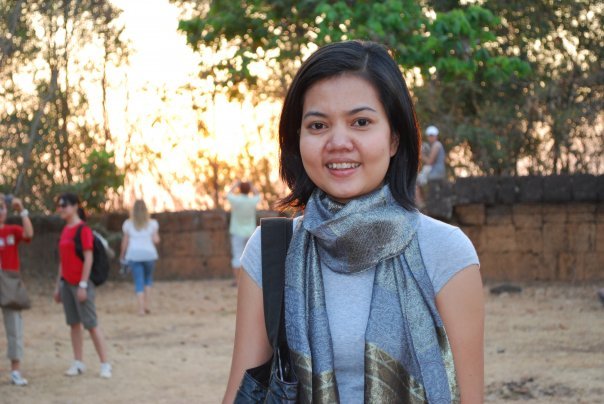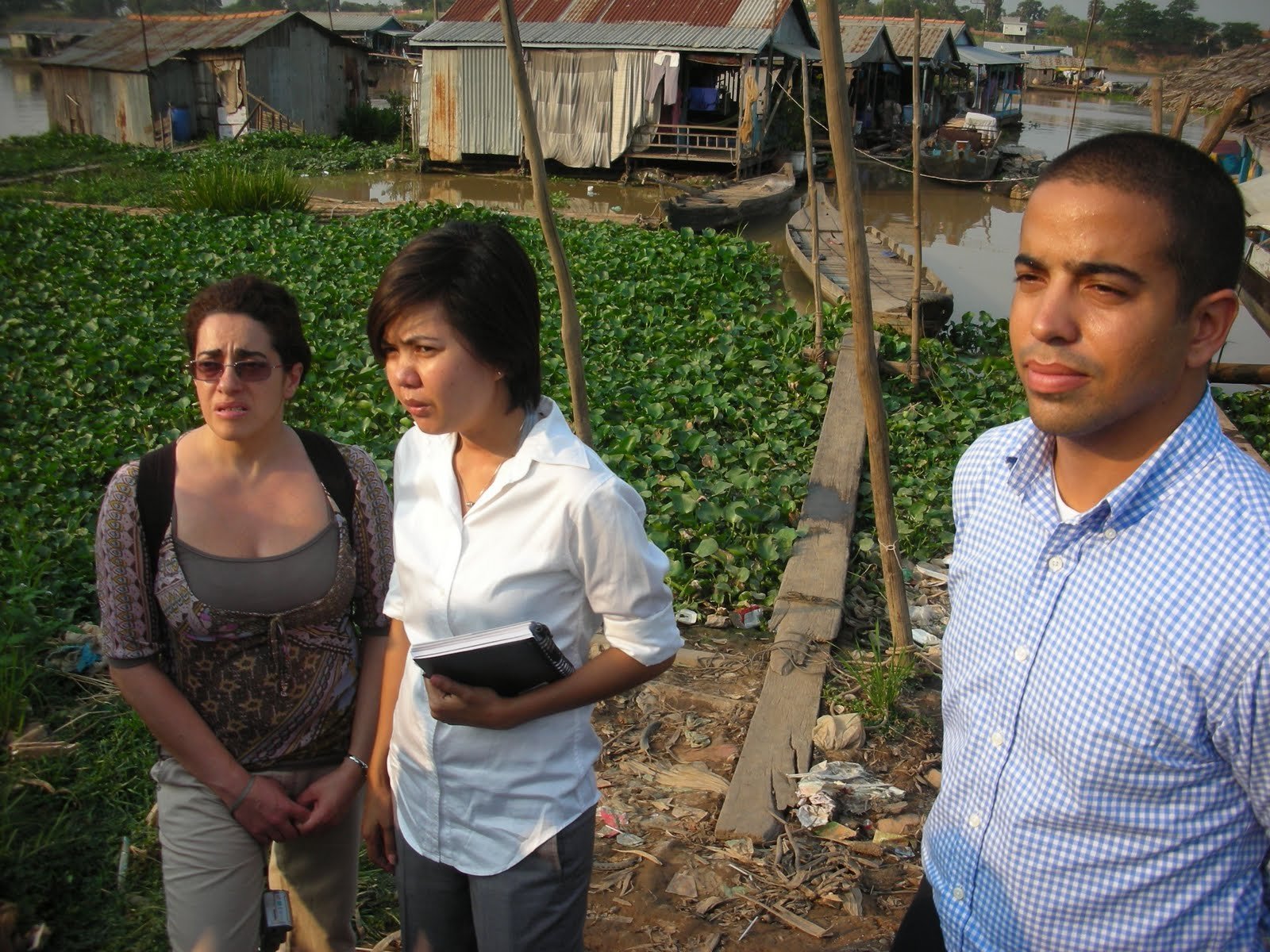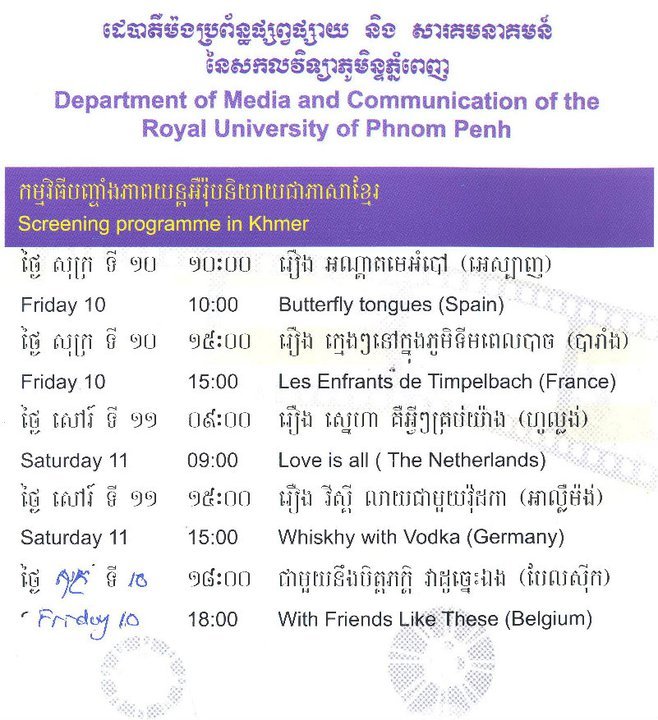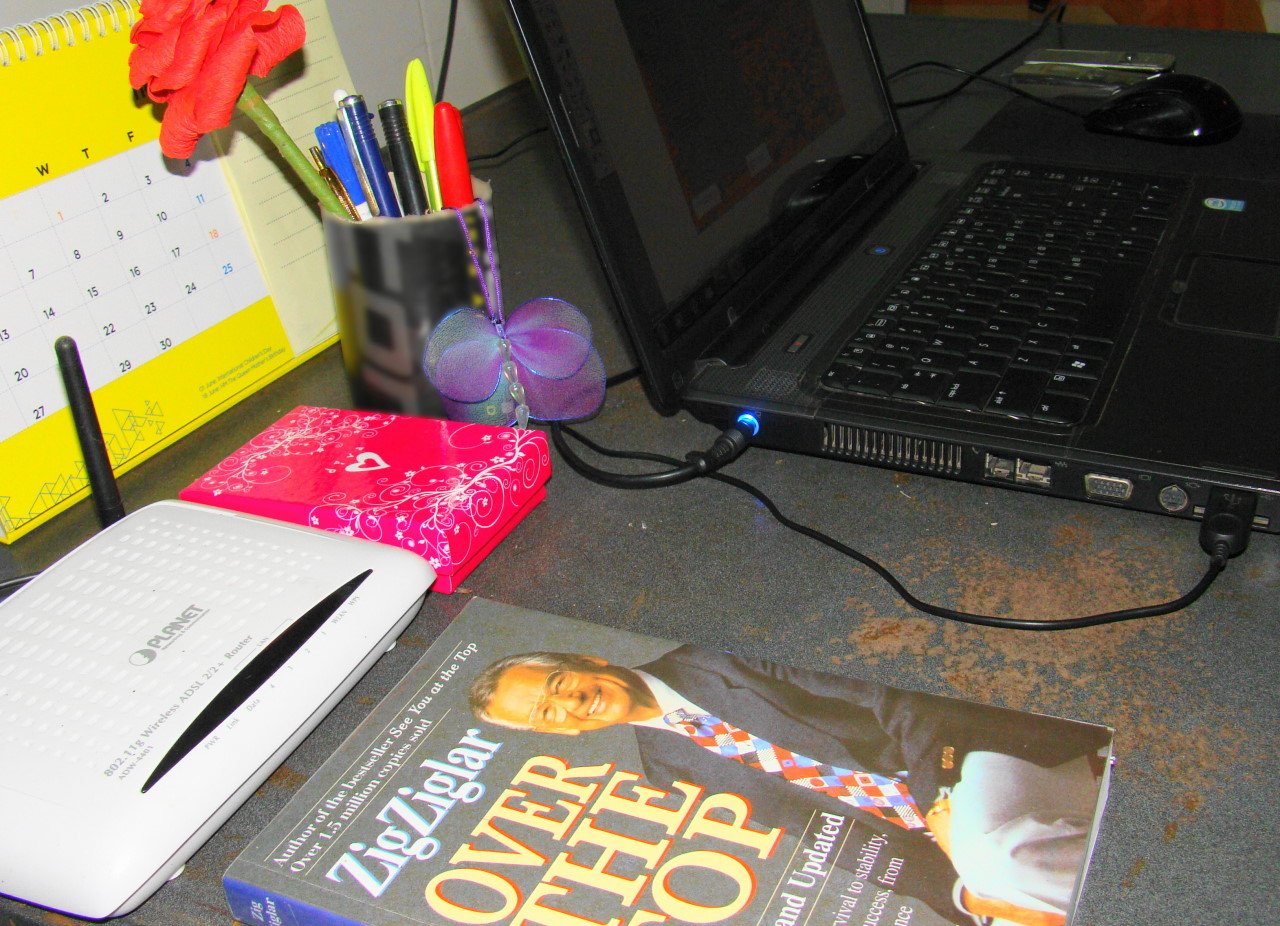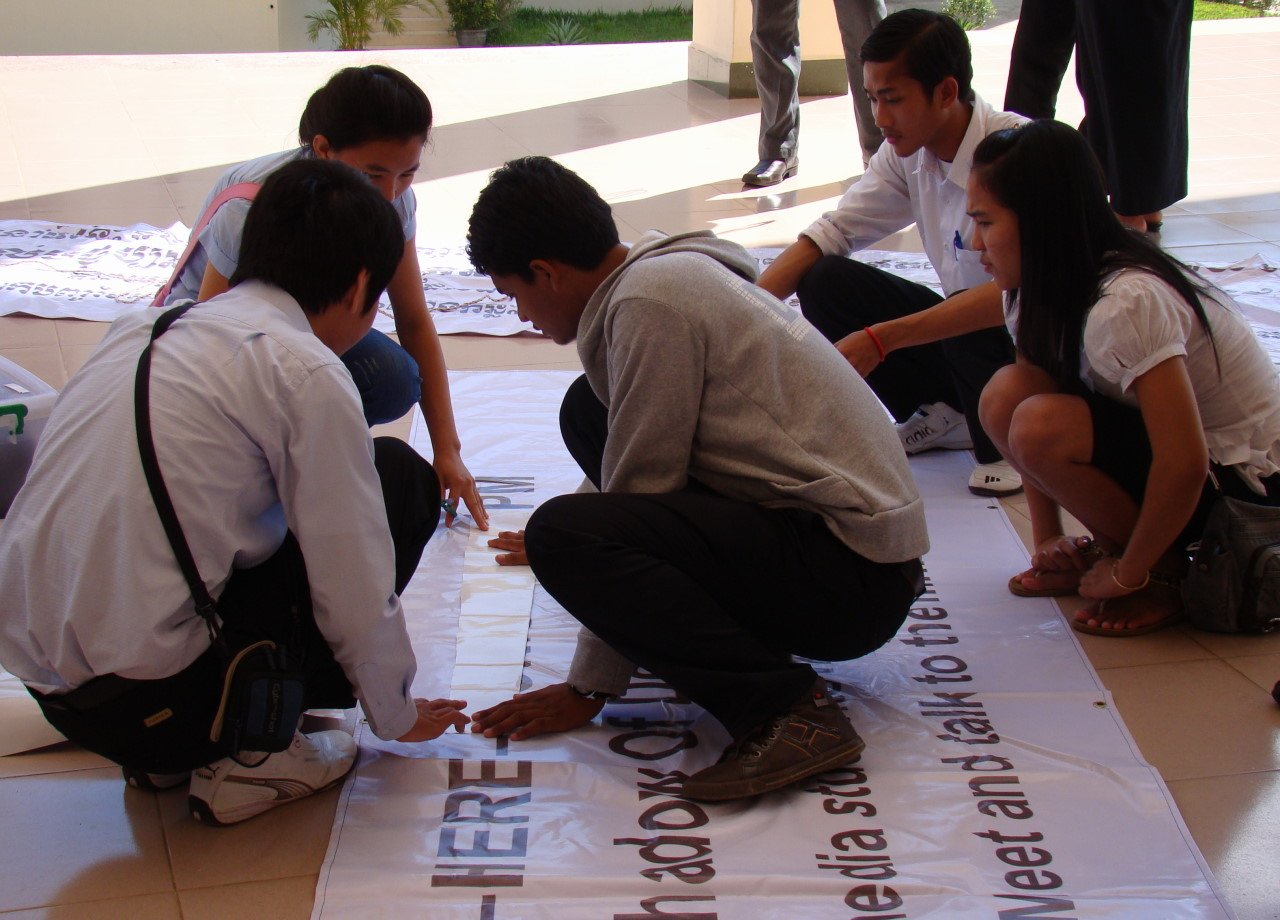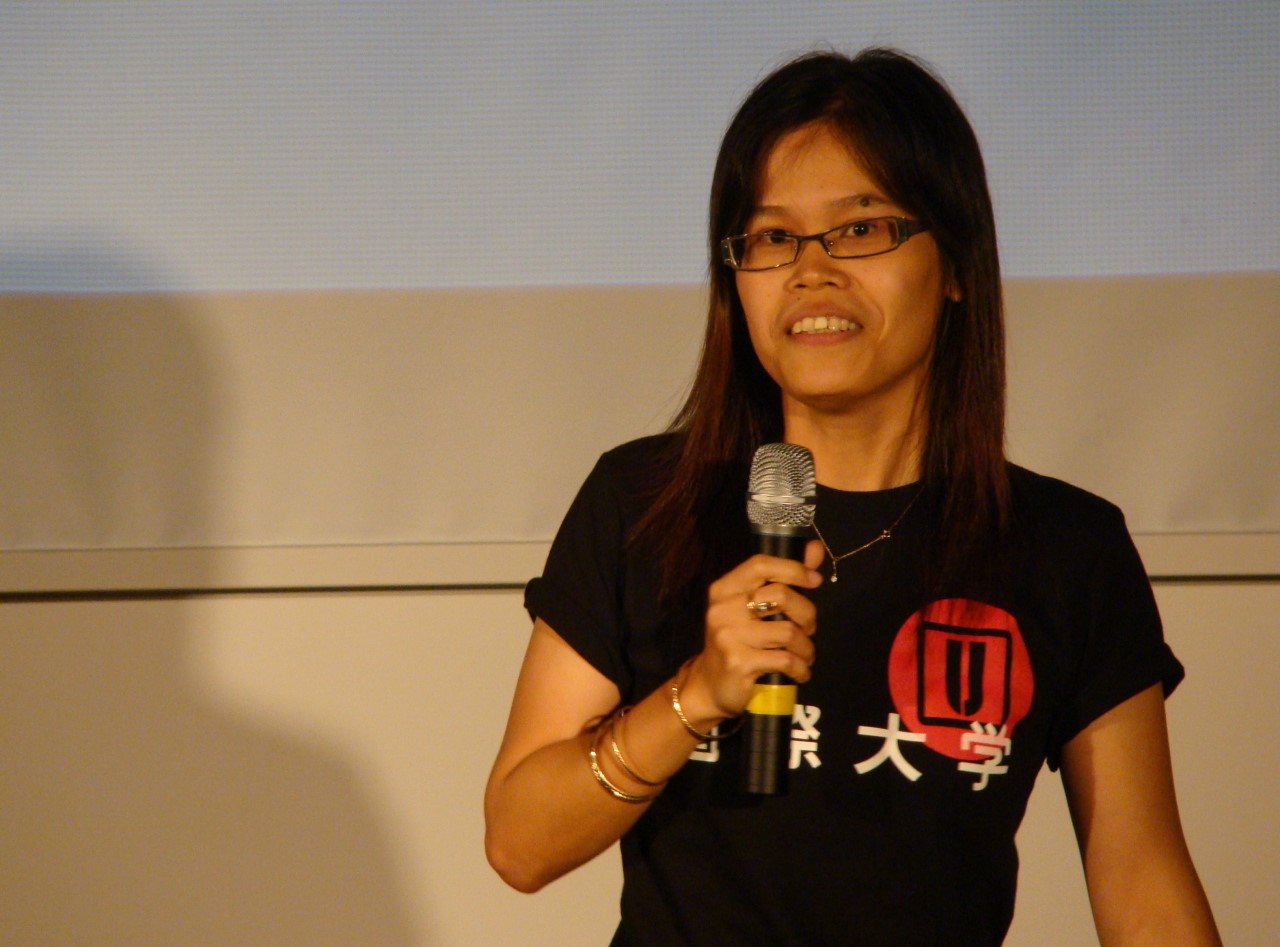Most people enjoy having a stable job, but there are some who continually switch positions in order to gain experience and follow their dreams. With eight different job titles in the past few years, Chhay Chenda definitely belongs in the latter category.
When asked, Chhay Chenda volunteered that she searches for jobs that can improve her personal and professional development. In other words, she looks for employers that help her to help them.
“I think I would choose to work in a place based on the learning opportunities it provides, rather than anything having to do with money or status,” Chhay Chenda said.
At the Food and Agriculture Organisation of the United Nations (FAO), Chhay works as a national intern, helping the programme officer to implement a food security project.
The 28-year-old usually begins her working day by checking her e-mail, then adding tasks from her to-do list to her personal calendar.
“Projects cannot start if I forget to put tasks in my to-do list,” remarked Chhay Chenda, adding that, by doing so, she can easily prioritise tasks she has to complete immediately, versus those that can wait until later.
She also emphasised that time management skills “help me remember all of my tasks and prevent me accidentally scheduling two meetings at once”.
And her tasks include more than just sitting around the office, checking e-mail, and writing reports. She has also conducted extensive research, met with key project stakeholders, recruited a national project manager and accompanied a mission from FAO HQ to the potential project implementation areas.
“Ensuring the success of our projects requires us to put in a lot of time and effort, including field work, so we can get a sense of the situation despite not being able to talk with all the people,” said Chhay Chenda, noting further that going to the field also enables her to write reports based on her reflections and analysis.
Since graduating in 2005 with a bachelor degree in business administration, accounting and finance, Chhay Chenda has taken the initiative to improve her accounting experience by travelling to work in Laos, studying for her CAT/ACCA accounting exams and even working as an intern at an accounting firm in New York City.
She was selected as a finalist for the Cartier Women Initiative Award in 2008, for a project titled Your Business Solutions.
She has spent six years working as the finance manager for various business and nonprofits, as well holding positions as the deputy director at Ecole Paul Dubrule School, and office manager at Hagar International.
Chhay Chenda maintains that she tries to avoid demanding things of the world, trying instead to give back by joining social activities and helping to improve other people’s lives.
Because she is passionate about learning in social entrepreneurship and international development, she convinced herself to be part of the UN, the World Bank, the Asian Development Bank and the Red Cross.
15/06/2011 By: Dara Saoyuth This article was published on LIFT, Issue 75 published on June 14, 2011